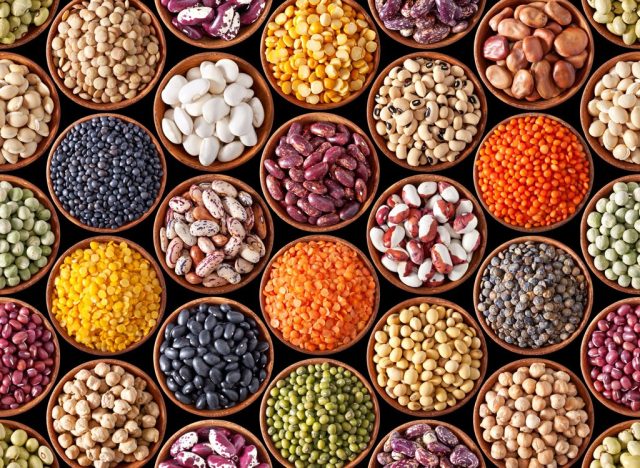This Eating Habit Can Add Over 13 Years To Your Life, Says New Study

A new study on food and life expectancy may have you thinking twice before you bring home the bacon. According to the study from PLOS Medicine, changing your diet might add anywhere from 6 to 13 years to your life, depending on how drastic the changes are, and how old the person is when they make these shifts.
To draw these conclusions, researchers looked at the typical Western diet, which consists largely of red and processed meats, added sugar, sugar-sweetened drinks, and refined carbohydrates.
They then compared this typical diet to one called the “optimal” diet, which consisted of much less red meat and processed foods, and was significantly higher in whole grains, legumes, nuts, fish, fruits, and vegetables.
Researchers then found that if someone at the age of 20 years old made a switch from the typical Western diet to the “optimal” way of eating, they could expand their life expectancy from 10 to 13 years!
The best results are estimated to come from the younger population, but making these diet changes at any age can help. The study also stated that if the person made this switch at the age of 60, they would still potentially live a longer life, with an estimated increase of around 8 to 9 years.
When you look at places around the world where people live the longest, you’ll notice that their diets tend to resemble something close to the “optimal” diet researchers point toward in this new study.
For example, the five Blue Zones in the world, which are regions with the highest concentrations of centenarians, all have diets that focus heavily on whole grains, legumes, and plenty of vegetables. Many of these communities eat fish, with meat consumed only on special occasions.

Research continually points toward the numerous health benefits that diets like these can give. Research shows that diets higher in legumes, nuts, seeds, fruits, and vegetables can help lower the risk of diabetes, heart disease, hypertension, and stroke.
In contrast, a recent study from British Medical Journal found that red meat consumption was associated with a higher risk of coronary heart disease and suggested replacing this with more legumes and nuts.
These research studies are helpful reminders that your diet truly does play an important role in your overall health. If you want to make some changes that may help you live longer, talk with your doctor about incorporating more legumes, whole grains, and veggies into your diet.









